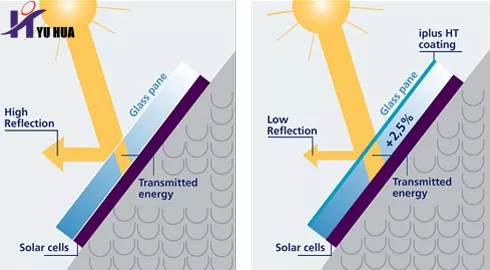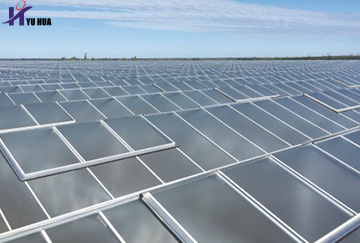
Glass is the best choice for Dutch style greenhouse construction
Glass and polycarbonate are both popular materials used in the construction of greenhouses, each with its own set of advantages and disadvantages. When considering which material to use for a greenhouse, it's important to weigh the pros and cons of each to determine which option is best suited for your specific needs.

One of the main reasons why glass is often chosen over polycarbonate for greenhouses is its durability and longevity. Glass is a highly durable material that can withstand harsh weather conditions, including strong winds, heavy rain, and hail. It is also resistant to fading and discoloration over time, ensuring that your greenhouse will maintain its clarity and transparency for many years to come. In contrast, polycarbonate panels are more susceptible to scratches, dents, and degradation from UV exposure, which can lead to a shorter lifespan and reduced light transmission.
Another advantage of using glass in greenhouses is its superior light transmission properties. Glass allows more light to penetrate through its surface compared to polycarbonate, resulting in better light distribution and more consistent growing conditions for plants. This increased light transmission can lead to improved plant growth and higher yields, making glass an attractive option for commercial greenhouse operations.

In addition to its durability and light transmission properties, glass also offers better insulation compared to polycarbonate. This means that greenhouses constructed with glass can more effectively retain heat, creating a more stable and controlled environment for plants. Glass also provides better UV protection, helping to shield plants from harmful radiation while still allowing beneficial light to reach them.
Furthermore, glass is known for its aesthetic appeal and ability to enhance the overall appearance of a greenhouse. Its smooth, transparent surface creates a visually appealing structure that allows for unobstructed views of the plants inside. This can be particularly important for retail greenhouses or garden centers where the display of plants is a key selling point.
While glass offers many advantages for greenhouse construction, it's important to acknowledge some of its drawbacks as well. One of the main concerns with using glass is its weight, which can make it more challenging and costly to install compared to lighter weight materials like polycarbonate. Glass panels also pose a higher risk of breakage during transportation and installation, requiring careful handling to avoid potential damage.
Additionally, the cost of glass can be higher than polycarbonate, especially when considering the initial investment and long-term maintenance. However, it's important to consider the overall value that glass provides in terms of durability, longevity, and performance when weighing the initial cost against the potential benefits over time.
Furthermore, polycarbonate panels are available in various thicknesses and configurations, allowing for flexibility in design and customization based on specific greenhouse requirements. This versatility makes polycarbonate a popular choice for hobbyist gardeners or smaller-scale greenhouse projects where cost and ease of installation are significant factors.
In conclusion, both glass and polycarbonate offer unique benefits for greenhouse construction, and the choice between the two ultimately depends on the specific needs and priorities of the greenhouse owner.

Ultimately, the decision to use glass or polycarbonate for a greenhouse should be based on a thorough assessment of factors such as climate conditions, budget constraints, long-term maintenance considerations, and the intended use of the greenhouse. By carefully evaluating these factors, greenhouse owners can make an informed decision that aligns with their goals for plant growth, sustainability, and overall performance of their greenhouse structure.
The light transmittance of Yuhua greenhouse glass can be as high as 99%, and there are 8 haze options including 5/10/20/30/40/50/70/75. Yuhua® also supplies glass to greenhouse project companies such as Havecon, Kubo, and Van Der Hoeven. Yuhua is the global leader in professional glass for greenhouses with the lowest tariffs. For details, please contact us at overseas@hnyxlc.com.
Tags:anti-reflective glass diffuse glass agricultural greenhouses glass greenhouse venlo greenhouse AR glass greenhouses glass agricultural glass horticultural glass #greenhouseglass #Antireflectiveglass #Diffusetemperedglass #Ultrawhitefloatglass #agriculturalgreenhouseglass #diffuseglass #horticulturalglass #Tomatogreenhouse #Coloredpeppergreenhouse #Lettucegreenhouse #Agriculturalgreenhouse #ARglass #venlogreenhouse #greenhouseglass #Antireflectiveglass #Diffusetemperedglass #Ultrawhitefloatglass #agriculturalgreenhouseglass #diffuseglass #horticulturalglass #Tomatogreenhouse #Coloredpeppergreenhouse #Lettucegreenhouse #Agriculturalgreenhouse #ARglass #venlogreenhouse #GlassManufacturer #invernadero #ArchitecturalGlass #ClearFloatGlass #FloatGlass
Previous:how to cut greenhouse glass
Next:Do we know the advantages and differences of glass greenhouses?



















